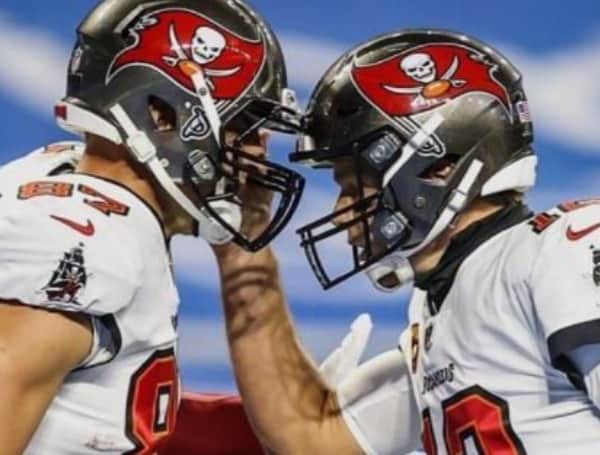Tampa has been the epicenter of sports excellence during this weird and often surreal time of COVID-19.
The Tampa Bay Rays went to baseball’s World Series only to lose to the Los Angeles Dodgers in six games. The Tampa Bay Lightning won hockey’s Stanley Cup, beating the Dallas Stars in six games.
Now, by winning on Sunday, the Tampa Bay Buccaneers head to football’s Super Bowl, which is in Tampa, the first time in the 55-year history of the Super Bowl that a team plays the championship game on its home field.
Tampa, by the way, does not have an NBA franchise.
The irony is that despite all that success Tampa fans did not get to see their heroes in person.
Because of COVID-19, the World Series was played in Texas. The Stanley Cup was decided in Alberta, Canada. And in two weeks, most of the nearly 66,000 seats at Tampa’s Raymond James Stadium will be empty as well.
But watching on TV won’t be all that entertaining, whether or not fans are from the Tampa Bay region.
The New York Post reported that the commercials for the big game – which are frequently better than the game itself and a draw for people who really aren’t football fans – are expected to be duds because of political correctness.
“A startling number of brands known for showcasing new commercials during the big football season finale are bowing out Super Bowl LV this year as advertisers struggle to hit the right note in a country plagued by the coronavirus pandemic, social and political unrest and record unemployment,” the Post reported. “Those that stay in the game are largely expected to play it safe, experts say.”
Bill Oberlander, co-founder and executive creative of the ad agency Oberlander, told the Post, “There is trepidation around Super Bowl advertising this year. For the Super Bowl, you generally go big or go home. I think brands are going home rather than spending tens of millions of dollars and not getting it right. They’re saying, ‘Let’s wait until this s—storm clears.’”
The latest to pull out was Coca-Cola, which is usually an eyeball magnet. An ad the soft-drink maker produced for Super Bowl XIV in 1980 – featuring NFL legend “Mean” Joe Greene tossing his jersey to a young fan who had shared his Coke with the player – was once judged the best Super Bowl as of all time.
But now Coke has benched itself, joining on the sideline companies like Hyundai, Olay, Little Caesars and Ford.
On the other hand, the Post pointed out, major brands like M&M’s, TurboTax, Anheuser-Busch, Toyota, Pringles, and Mountain Dew are still willing to shell out the going rate of $5.5 million for a 30-second slot.
The problem for the broadcaster, CBS, is that as of earlier this month, ad space remained, the Post reported. Comparatively, Fox sold out ads for last year’s game by Thanksgiving.
One reason: politics.
Rob Schwartz, CEO of the ad agency TBWA\Chiat\Day, told the Post, “Every client conversation I’ve had these days is about who is going to be offended by this ad. There’s a lot of discussion about risk mitigation. What that tends to do is that it makes things very bland and not effective or it forces you to look at universal topics like hope or humor.”
Oberlander, the other ad exec, agreed. “The country is so divided and split right down the middle that I don’t think that there’s a commercial that will appease both sides.”
In recent years, advertisers have taken hits with spots that have courted left-wing themes, such as Black Lives Matter and ending “toxic masculinity.”
On the other hand, liberals got upset a few years ago with Doritos and Focus on the Family for commercials they considered overly pro-life.
The second of those, which featured former Florida Gators superstar Tim Tebow and his mother, was rated by some as the most controversial of all time.

